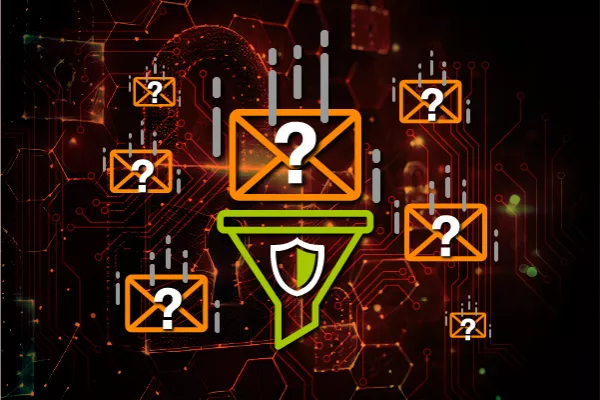Whether in business or in our personal lives, email is an essential form of communication that we use every single day. However, with the convenience of email comes the risk of cyber threats that can jeopardize sensitive information and compromise your business's integrity. It is more important than ever to prioritize email security to safeguard your company's data and reputation.
Identifying genuine emails can be tricky! Phishing attacks are becoming more advanced by enticing the user to click on links or attachments designed to trick them into unwittingly giving up credentials or installing malicious software onto their devices. This can be devastating for businesses and individuals alike: financial loss, data breaches, and damage to reputation are but some of the consequences for getting caught out.
Then there's the sheer volume of spam emails. Our inboxes become overwhelmed, and employees spend valuable time sifting through a sea of nonsense, distracted from more important tasks and hopefully not playing Russian roulette with dangerous links on the way.
For companies, the threat extends further. Without robust email protection policies in place, the risk of data breaches, GDPR non-compliance, and potentially associated legal repercussions, could be damaging for any business.
So, what can we do to combat the threat of malicious emails?
The larger email providers, such as Microsoft 365 and Google, have already gone a long way to improve email security as part of their standard service, with advanced threat protection features sold as optional add-ons. But not all email providers have this available.
As developers of bespoke software applications, we sometimes have the need to feed data or customer communications into an application directly by email. The emails are then processed within the application by automated processes, or manually by staff.
We recently developed a bespoke billing application that sends invoices to customers and chases overdue payments. Our client wanted customers’ email queries to be received directly into the application and linked to their account to make resolving issues easier. We were concerned that allowing unfiltered email into the application could affect its performance and potentially introduce another vector for phishing attacks. To mitigate this risk, we deployed Eunetic’s EuropeanMX email filter as a first line of defence against spam before the emails hit our own systems. This has worked really well for this project.
In conclusion, the need for email protection cannot be overstated in today's digital landscape. The risks posed extend beyond mere inconvenience and can have profound implications for security, productivity, and reputation.
If you’re concerned about your company’s email security contact us for chat – we're here to help.







